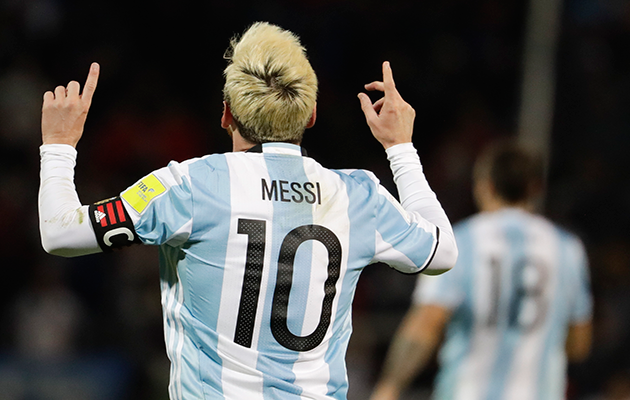Back on June 26, some 27 minutes into the final of the Copa Centenario, Chile had key midfielder Marcelo Diaz sent off.
At that, everything was looking rosy for Argentina. This time, surely, they would go on to win the trophy and finally take that elephant off their back by winning a senior title for the first time since 1993.
Brazil, meanwhile, were in the doldrums. They had been knocked out of the Copa in the group phase. Coach Dunga had been sacked, and though the right man, Tite, had belatedly been appointed, he looked to have a tough task ahead. Brazil were 6th in the 2018 World Cup qualification table – missing out on a place in Russia as it stood.
There were some tough games coming up and Tite would have next to no time to work with his players. At that point, as Marcelo Diaz trudged off the New Jersey pitch, Argentina’s position looked far better than that of Brazil.
A little over four months later, things now look very different when the old rivals meet this Thursday in the 11th round of qualification. Tite has hit the ground running, putting together four consecutive wins with a style and swagger that have enthused the fans as well as taking Brazil to the top of the table.
Very little has gone right for Argentina. In the Copa final Marcos Rojo was sent off some 15 minutes after Diaz. Two teams of ten men played out a stale 120 minutes, and for the second year running Chile beat Argentina on penalties – Argentina’s third final defeat in three years. It cast a giant cloud over the national team. Coach Gerardo Martino soon resigned, protesting about the chaotic preparations for the Olympics, a tournament which would have been entirely irrelevant had Argentina won the Copa Centenario.
Edgardo Bauza came in to replace him in the same circumstances as Tite, with next to no time to work with his players. But Bauza was at a further disadvantage. Tite had a clear idea of what he wanted to do. He would use the 4-1-4-1 formation that had served Corinthians so well winning last year’s football championship. As Dunga had already been moving in that direction, the transition proved a smooth one.
Bauza, in contrast, was right in at the deep end. Lionel Messi swiftly went back on his decision to retire from international football. But Bauza quickly got to appreciate the problems of building a team without the Barcelona genius. Messi tipped the balance in Bauza’s debut game, a 1-0 win over Uruguay. But he was injured for the next three – a home defeat and two rocky 2-2 away draws. In none of these games have Argentine looked remotely like a team. They have been a disjointed mess, and the defensive unit has been creaking alarmingly. And now they face what, on paper at least, is the most difficult game of the entire campaign – away to the in-form leaders.
Extra pressure was piled on last week, when FIFA punished Bolivia for fielding an ineligible player in September’s matches against Peru and Chile. Bolivia’s opponents were awarded 3-0 wins – which carries Chile up to fifth in the table, pushing Argentina down to sixth, outside the qualification places – the very position Brazil occupied just four rounds ago.
The difficulty of the task could well come to Bauza’s aid. There is surely no need for Argentina’s coach to over-think this one. The prescription looks clear enough. Instead of the 4-2-3-1 which has been his base formation, he will almost certainly line up with two banks of four, looking for his central midfielders to stay close enough to ensure that the centre backs are not exposed, and hoping that his wide midfielders can work with the full backs to lock down the flanks against the threat of Neymar and Phillippe Coutinho.
As long as the game is goalless Bauza will be happy, and he will hope that as the game wears on Brazil might over-commit themselves and that space might open up for Messi on the counter- attack.
The worrying news for Brazil here is the absence through injury of first choice holding midfielder Casemiro, who balances out the side. Fernandinho will deputise for him, as happened in last month’s matches against Bolivia and Venezuela. Messi, of course, represents an entirely different level of threat. For all his versatility and lung power, Fernandinho is probably not a natural for the holding role – as Messi was able to demonstrate in Barcelona’s 4-0 win over Manchester City in the Champions League. This is undoubtedly a big match for the Man City player – back on the same Belo Horizonte field where he was so inexplicably poor as Brazil lost 7-1 to Germany a little more than two years ago.
Despite that semi final result, and the equally famous 2-1 defeat to Uruguay in the 1950 final, Brazil have never been beaten at home in a World Cup qualifier. Argentina, meanwhile, have a 100% record while Messi has been on the field in the current campaign. One of those statistics will no longer apply come the final whistle on Thursday.
ends






